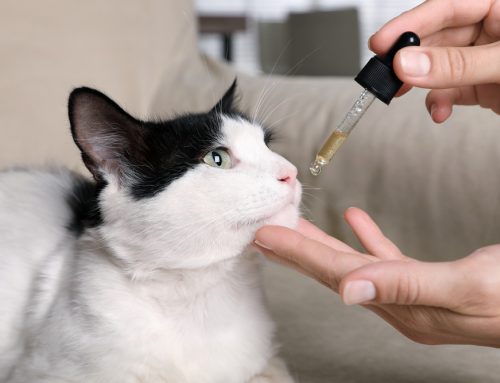Why spay or neuter your pet? In addition to reducing pet overpopulation, spayed and neutered pets live longer. The Walnut Creek Vet Hospital team strongly advocates spaying or neutering pets who are not part of a responsible breeding program. We answer some of the most frequently asked questions about spaying or neutering your pet.
Question: What is a pet spay or neuter procedure?
Answer: A spay surgery is an ovariohysterectomy that removes a female’s ovaries and uterus. Neuter surgery removes a male’s testicles from inside their scrotum. Both procedures reduce secretion of sex hormones, preventing a female pet from coming into heat, and eliminating male and female pets’ reproductive ability.
Q: What are the health benefits of spaying my pet?
A: Spaying your female pet can reduce or eliminate the following potential health problems:
- Mammary cancer — Spaying your pet before they go into heat eliminates this cancer risk, whereas the risk increases to 25% after their first heat. Spaying older pets can still help reduce estrogens that stimulate mammary tumors.
- Uterine infection — Spaying prevents a life-threatening uterine infection (i.e., pyometra) that requires complicated emergency surgery. The risk of pyometra development increases as your pet ages.
- Pregnancy complications — Pregnancy poses not only risks for calcium deficiency (i.e., eclampsia), gestational diabetes, painful and inflamed mammary glands (i.e., mastitis), and birthing difficulties (i.e., dystocia), but also the need for an emergency caesarean section.
Q: What are the health benefits of neutering my pet?
A: Neutering your male pet can reduce or eliminate the following potential health problems:
- Testicular cancer — Neutering eliminates this cancer risk, and is especially essential if both testicles have not descended (i.e., cryptorchid).
- Prostate complications — Neutering prevents painful prostatic abscesses and an enlarged prostate (i.e., prostatitis), which can reduce your pet’s ability to urinate.
- Trauma — Males who have not been neutered represent a significantly higher proportion of pets who are hit by cars, or become involved in fights.
Q: Will my pet’s behavior change if they are spayed or neutered?
A: Spaying or neutering your pet will not change their personality, but the reduction in their sex hormones can help address unwanted behaviors, including:
- Aggression — Spaying or neutering can reduce, but not eliminate, aggressive tendencies and dominance behavior.
- Roaming — Neutered male pets are no longer compelled to escape yards or homes in search of a female in heat.
- Mounting — Spaying or neutering can reduce your pet’s mounting behavior, which may also be an expression of dominance.
- Urine marking — Spaying or neutering reduces or eliminates your pet’s need to mark their territory, including inside your home.
Q: Will my pet gain weight if they are spayed or neutered?
A: Spaying or neutering may decrease your pet’s metabolic rate and caloric needs. The Walnut Creek Vet Hospital team can suggest nutritional changes after a spay or neuter to help your pet stay in good physical shape.
Q: Are there financial benefits to spaying or neutering my pet?
A: A spay or neuter surgery costs considerably less than treatment for pyometra, mammary or testicular cancer, prostate or birth complications, and trauma. In addition, raising a litter of puppies or kittens comes with a whole host of health care expenses.
Q: Is spay or neuter surgery safe for my pet?
A: Research has shown that the risk of death from routine spay or neuter surgery is less than 0.05%. At Walnut Creek Vet Hospital, we perform a complete pre-surgical evaluation to ensure your pet is a good surgical candidate. We consider the surgical procedure to be performed, and tailor the anesthetic protocol for your pet based on their overall health, age, and size. Our highly trained veterinary team carefully monitors your pet’s vital signs before, during, and after the procedure.
Q: When should my pet be spayed or neutered?

A: We recommend spaying or neutering cats at 5 months of age to prevent behavior problems or unwanted pregnancy. The timing of spaying or neutering dogs depends on their gender and size. In general, we recommend female dogs be spayed before their first heat, which occurs at 6 to 8 months of age. For males, timing is less essential, and delayed neutering for large-breed dogs can help with bone development. Each pet is unique, and our veterinary team can recommend the best time for your pet’s procedure.
Spaying or neutering provides medical and behavioral benefits for your pet. If you have questions we have not answered, or are still unsure about any aspect of the procedures, give your Walnut Creek Vet Hospital team a call.









Leave A Comment